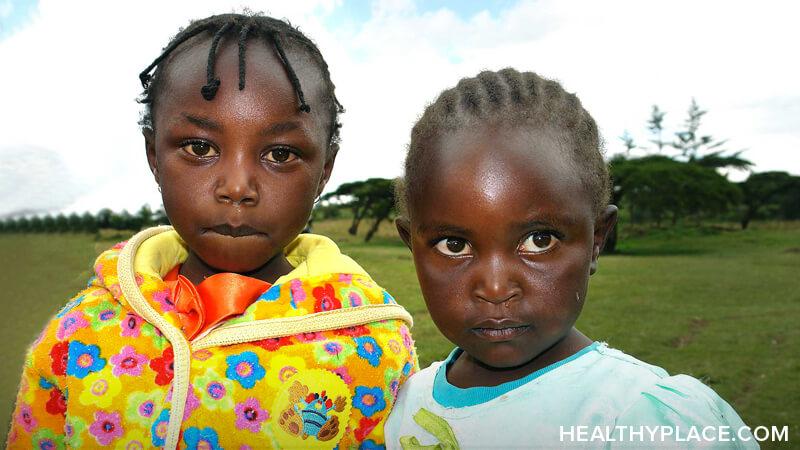Risk Factors for Mental Illness in Children

Like everything else in life, the risk factors for mental illness in children are impacted by both nature and nurture. Some of these risk factors I can do something about as a mother raising a child with mental illness, although some are out of my control. Accepting this has been one of the hardest parts of motherhood for me, but it's also been one of the most liberating.
Risk Factors Associated with Childhood Mental Illness
There are a handful of risk factors for mental illness in children, including:
- Genetics: If family members have a mental illness, a child is more likely to have one, too, although not necessarily the same condition.
- Stress: Stress is associated with anxiety, depression, and drug abuse.
- Trauma: Trauma can lead to posttraumatic stress disorder (PTSD) and drug abuse.
- Identity issues: Children who are questioning their sexuality or gender are more prone to depression and anxiety, especially if there's a lack of social support.
- Family dysfunction: A dysfunctional home life, especially one fed by a parent's addiction, can lead to children having social problems, mental illness, and issues with substance abuse.
- Other illnesses: Physical illnesses and developmental disabilities are risk factors for anxiety, depression, and substance abuse in children.
- Poverty: Children in poverty are more at risk for drug abuse and mental illness.
- Involvement in the juvenile justice system: Children who are caught up in the juvenile justice system--especially girls--are at much higher risk of developing mental illness and substance abuse.
- Drug and alcohol abuse: Changes in the brain caused by drug and alcohol abuse can lead to anxiety and depression in children.1
Accepting What I Can and Cannot Do as a Parent About the Risk Factors for My Child's Mental Illness
Some of these risk factors are definitely relevant for my child, who has attention-deficit/hyperactivity disorder (ADHD). Mental illness runs on both sides of his family, as does addiction. There's also been some family dysfunction that we've had to overcome together, and life hasn't always been stress-free. Unfortunately, there's nothing I can do about these factors, so there's no point in obsessing over them too much. Changing my child's genetics or transforming the past into something it isn't simply is not my responsibility. It's enough to acknowledge that these risk factors possibly play a role in my child's mental illness and move on.
My responsibility is the things I can change. I can teach my child how I've learned to handle my own mental illness. I can keep my issues with addiction under control and one day share my story with him, so maybe--just maybe--he can learn from my mistakes. I can try to make life at home as stress-free as I possibly can, and when things do get chaotic, I can show my child how to cope. I can be there for him through any trauma he one day endures.
I can simply be there for him.
What risk factors do you think play into your child's mental illness? Have you accepted what you can and cannot change? I'd love to talk about it in the comments.
And if substance abuse plays a role in your child's mental illness, I hope you find comfort in my video:
Source
- New York Center for Living. "Adolescent Mental Health Treatment and Risk Factors." October 2018.
APA Reference
Sharp, S.
(2021, July 21). Risk Factors for Mental Illness in Children, HealthyPlace. Retrieved
on 2026, February 23 from https://www.healthyplace.com/blogs/parentingchildwithmentalillness/2021/7/risk-factors-for-mental-illness-in-children